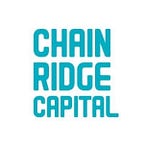The Tacen Exchange
Using Hybrid-Decentralized Architecture
Centralization Shortcomings
On a day-to-day basis, people interact with various systems like Facebook, Netflix and Amazon, all of which are controlled by a centralized authority. Transactions made in these platforms have to go through third-party intermediaries who have access to the data and personal information of their users. These intermediaries have complete control over the systems in place and all their clients’ data. Users have to trust that these centralized organizations will keep their data safe and private. However, this isn’t always possible.
A few years ago, Yahoo was hacked and more than one billion user accounts were compromised, making this digital heist the biggest security breach in history [1]. Because centralized systems use centralized servers, once these servers are attacked, the entire network is at risk. These security threats are why decentralization is so appealing.
The Decentralized Alternative
The advent of blockchain technology first made decentralization possible. This technology is built upon thousands of independent nodes operating the network, making it almost impossible to hack. A decentralized system offers much better security compared to its centralized counterpart. Additionally, in a decentralized system, people interact using public and private keys allowing users to maintain anonymity and protect their privacy. Most importantly, no single authority or centralized organization controls decentralized sytems within the blockchain technology [2]. Instead, control is distributed among users of the system. These clear advantages have allowed decentralization to take center stage in the ever evolving cryptocurrency sphere.
Centralized Vs. Decentralized Exchange
When it comes to cryptocurrency exchanges, platforms where cryptocurrencies can be bought and sold, there are mainly two kinds: centralized and decentralized exchanges. Despite the risks associated with centralized exchanges, including accusations of insider trading and price manipulation, they are still more commonly preferred because they have consistently high liquidity and large trading volume. Centralized exchanges are user-friendly and they offer customer support as well as fast transaction speeds [3].
Decentralized exchanges, on the other hand, utilize peer-to-peer (P2P) trading which uses assets, proxy tokens, or an escrow system [4]. Though they are the more secure and affordable option, decentralized exchanges don’t support fiat money, making them unattractive to institutional traders and first-time buyers. These factors come into play resulting in small attendance on decentralized exchanges leading to lower trading volume and liquidity.
However, it’s crucial to take into consideration the fact that decentralized exchanges are relatively new and are still evolving and improving. In fact, one such exchange proposes an answer to the current issues plaguing both centralized and decentralizes exchanges.
Tacen’s Position
Tacen is a high-performance non-custodial exchange that uses smart wallets to ensure that users have full custody of their funds [5]. Combining the high performance of centralized exchanges with the security and privacy found in decentralized exchanges, Tacen offers the best of both worlds through its hybrid-decentralized architecture. Tacen is U.S.-based and is built to comply with all SEC, FinCEN, and CFTC regulations without the need for personal information or centralized fund management.
Exciting pipelined products and services include allowing users to deploy their own non-custodial smart wallets, which they control and trade without the need for KYC onboarding. This will ensure complete privacy for its users without sacrificing control over their assets. Tacen commits to creating a global liquidity pool as well as connecting as many trading desks as possible for its clients. Opportunities in tokenized assets and NFT projects collaborations are also in the works for an expanded exchange set-up [6].
Investing in the Future
With an emphasis on inclusivity, Tacen takes advantage of the latest decentralized technology to create an architecture that connects with leading platforms and ecosystems. It is one of the first startups to build on Dfinity’s Internet Computer Protocol, which enables a new breed of open internet services [7]. With promising partnerships like these, the monopolization that Big Tech companies have enjoyed for decades may come to a halt, and a more collaborative future for everyone could become a reality sooner rather than later.
[1] https://www.cbsnews.com/news/yahoo-hackers-stole-1-billion-users-accounts/
[2] https://www.bitdegree.org/crypto/tutorials/centralized-vs-decentralized
[3] https://cryptogeek.info/en/blog/decentralized-exchanges-pros-and-cons
[4] https://www.upgrad.com/blog/centralized-vs-decentralized-cryptocurrency/
[5] https://tacen.com/blog/introducing-tacen/
[6] https://tacen.com
[7] https://dfinity.org/evolution-of-the-internet
